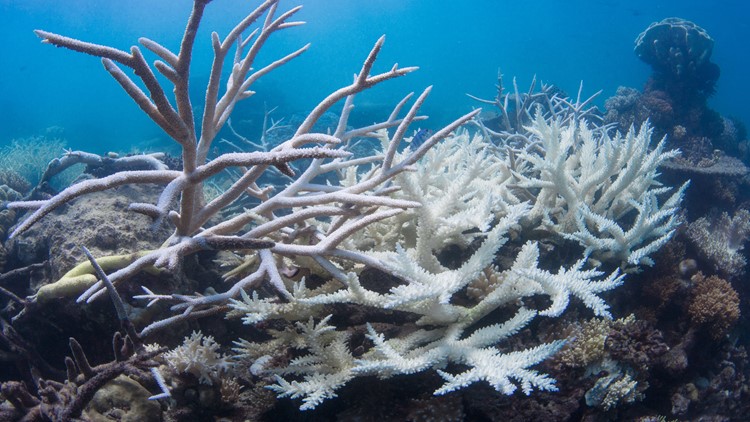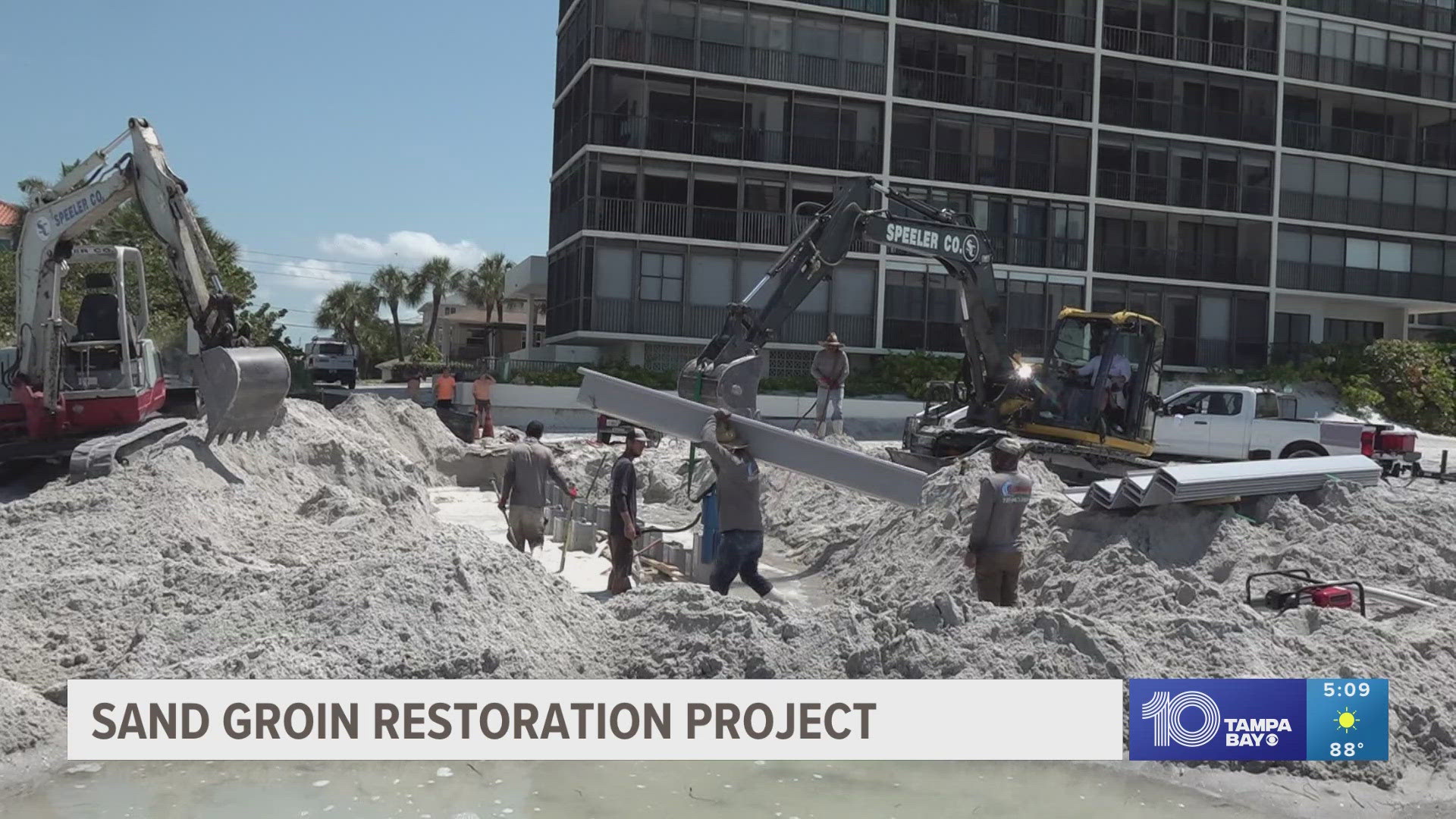ST. PETERSBURG, Fla. — Scientists are closely monitoring the only coral reef system in the U.S. as a sudden marine heatwave sends ocean temperatures soaring to unprecedented highs along Florida's gulf coast.
Waters surrounding all of Florida are currently 4 to 5 degrees warmer than normal this time of year, the National Weather Service said. Ocean temperatures are currently clocking 90 to 93 degrees Fahrenheit around much of Florida, which is extremely warm.
Scientists say in a combination of climate change and a new El Nino, which typically brings warmer oceans, may have disastrous effects on Florida's coral reef, like coral bleaching.
The Florida Department of Environmental Protection said coral bleaching happens when corals are stressed by changes in their conditions and they "expel colorful algae living in their translucent tissues," which ends up showing their white skeleton.
"It's inevitable in Florida," The Florida Aquarium Scientist Rachel Morgan said in part. "Bleaching has become fairly regular. There have been some major bleaching events.
"It gets warm every summer. There is bleaching every summer and there are corals out there, today, who have made it through those events."
Although a bleaching event doesn't mean certain death for the coral, Morgan said coral can only sustain for so long before eventually dying off due to lack of nutrients.
"What we worry about [is] having a heat event so early in the summer, it's relatively early, it's July. It's warm already. We still have August and September to get through and if this is what July looks like then it makes us hesitant, again, about August and September," Morgan said. "Will these corals be able to sustain themselves through all of this or will this bleaching event be followed by a mortality event?"
Morgan said scientists hope the corals will be able to recover from the inevitable bleaching event, and even if they do, there is still concern about other factors that are "beating them down" like increased major weather events to human pollution.
Florida's coral reefs not only house over 40 species of reef-building corals, but they also provide protection for people.
The New York Times reported that coral reefs take on the first impact from storms. In the United States, reefs generate economic benefits to the tune of $3.4 billion annually for fisheries, tourism and coastal protection, according to NOAA.
To fight against the decline of some coral species, threatened coral has been grown in-house at The Florida Aquarium to eventually be placed back into the ocean.
But Morgan says it's only so much scientists can do.
"We are talking about a large-scale area. And there is only so much we can do and there are so many things we are battling," Morgan said.
Morgan did give a glimmer of hope by listing off what Floridians can do to help protect the coral reefs. She said for some it is to watch their marine debris while out on the water, for others it's wearing non-toxic sunscreen and being mindful of one's carbon footprint.
Here's a full list of tips on how to protect coral reefs.



